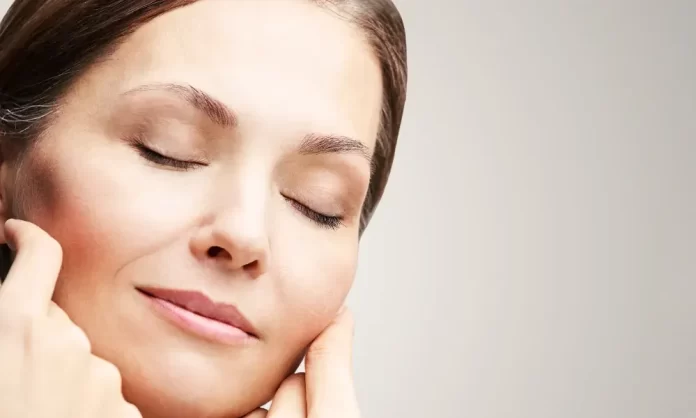The Gut-Skin Connection: Integrative Approaches to Managing Skin and Gut Health
Introduction
The intricate relationship between gut health and skin conditions has gained significant recognition in recent years. Both scientific research and holistic practices like Ayurveda emphasize the gut-skin axis, a bidirectional link that underscores the interplay between the digestive system and skin health. Understanding this connection is vital for managing chronic inflammatory conditions such as acne, Hidradenitis Suppurativa (HS), and other skin disorders. This article delves into the mechanisms, clinical implications, and integrative treatment strategies that address both gut and skin health.
Understanding the Gut-Skin Axis
The gut-skin axis describes the complex interaction between the gastrointestinal system and the skin, mediated by various pathways including the immune system, hormonal signaling, and the gut microbiome.
Key Components of the Gut-Skin Axis:
- Gut Microbiome: The trillions of microorganisms in the gut play a pivotal role in regulating the immune system and inflammation. Imbalances in gut microbiota, known as dysbiosis, can lead to systemic inflammation that affects the skin.
- Immune System: The gut-associated lymphoid tissue (GALT) is a key player in the immune system, influencing systemic immune responses. Inflammatory processes originating in the gut can manifest as skin conditions.
- Nutrient Absorption: The gut’s role in absorbing essential nutrients—such as vitamins, minerals, and antioxidants—is crucial for maintaining healthy skin.
- Hormonal Regulation: The gut influences hormonal balance, which can impact skin health. Hormones like androgens and cortisol affect sebum production and skin inflammation.
Skin Conditions Linked to Gut Health
Acne
Pathophysiology:
- Sebum Production: Elevated androgen levels, often linked to gut health, stimulate sebaceous glands to produce excess sebum, leading to oily skin and clogged pores.
- Inflammation: Dysbiosis can increase intestinal permeability, triggering systemic inflammation that worsens acne.
Clinical Implications:
- Dietary Triggers: Foods with a high glycemic index, dairy, and processed foods can disrupt gut microbiota and exacerbate acne.
- Associated Symptoms: Acne is often accompanied by gastrointestinal issues such as bloating, constipation, and diarrhea.
Hidradenitis Suppurativa (HS)
Pathophysiology:
- Follicular Occlusion: Similar to acne, HS involves blocked hair follicles, with dysbiosis contributing to systemic inflammation.
- Chronic Inflammation: Increased intestinal permeability and systemic immune activation can exacerbate HS symptoms.
Clinical Implications:
- Dietary Triggers: Inflammatory foods or allergens can worsen HS symptoms.
- Associated Conditions: HS is often linked with inflammatory bowel diseases (IBD) like Crohn’s disease, highlighting the gut-skin connection.
Integrative Treatment Strategies
Modern Medical Approaches
- Probiotics and Prebiotics: Supplementation helps restore gut microbiota balance, which can reduce inflammation and improve skin health.
- Anti-inflammatory Medications: Used to manage systemic inflammation originating from the gut.
- Dietary Interventions: Reducing high-glycemic foods, dairy, and processed foods to support gut health and alleviate skin issues.
Ayurvedic Approaches
Dietary Adjustments:
- Balancing Doshas: Tailoring the diet to balance Vata, Pitta, and Kapha doshas is essential for enhancing both gut and skin health.
Relevant Shloka: “Pathya ahara vihara sevana”
(Charaka Samhita, Sutrasthana 30.26)
“Consumption of a suitable diet and lifestyle is essential.”
- Foods to Include: Leafy greens, whole grains, and cooling, anti-inflammatory foods such as turmeric and neem.
Herbal Remedies:
- Triphala: A traditional Ayurvedic formula that supports gut health and detoxification.
- Neem (Azadirachta indica): Offers antibacterial and anti-inflammatory benefits, aiding in skin health.
- Turmeric (Curcuma longa): Reduces inflammation and supports liver function, contributing to overall skin and gut health.
Lifestyle Adjustments:
- Stress Management: Incorporating yoga, meditation, and other stress-reducing practices to improve gut health.
- Regular Exercise: Physical activity enhances digestion and reduces systemic inflammation.
Relevant Shloka: “Yogah chittavritti nirodhah”
(Yoga Sutras of Patanjali 1.2)
“Yoga is the cessation of the fluctuations of the mind.”
Case Studies: Integrative Management of Skin and Gut Health
Case Study 1: Addressing Acne Through Gut Health
Patient Profile:
- Name: Emma T.
- Age: 28
- Symptoms: Moderate to severe acne, along with bloating and irregular bowel movements.
Integrative Treatment Plan:
Modern Medical Approach:
- Probiotics: Supplementation with Lactobacillus and Bifidobacterium strains to restore gut balance.
- Dietary Changes: Eliminating high-glycemic foods and dairy products.
Ayurvedic Approach:
- Dietary Modifications: A Pitta-pacifying diet with cooling and anti-inflammatory foods.
- Herbal Support: Use of Triphala and turmeric to enhance gut health and reduce inflammation.
- Lifestyle Adjustments: Incorporation of yoga and meditation to lower stress levels.
Outcome:
- Noticeable reduction in acne severity and improved bowel regularity.
- Overall improvement in skin clarity and digestive health.
Case Study 2: Managing Hidradenitis Suppurativa Through Gut Health
Patient Profile:
- Name: David M.
- Age: 35
- Symptoms: Recurrent painful nodules in armpits and groin, occasional abdominal pain.
Integrative Treatment Plan:
Modern Medical Approach:
- Anti-inflammatory Medications: Use of biologics to control systemic inflammation.
- Probiotics: Supplementation to restore gut microbiota balance.
Ayurvedic Approach:
- Dietary Modifications: A Kapha and Pitta-pacifying diet to reduce inflammation.
- Herbal Support: Neem and guduchi to lower systemic inflammation.
- Lifestyle Adjustments: Regular physical activity and stress management practices.
Outcome:
- Reduced frequency and severity of HS flare-ups.
- Improved abdominal symptoms and enhanced overall skin health.
Conclusion
The gut-skin axis plays a critical role in the management of chronic inflammatory conditions like acne and Hidradenitis Suppurativa. By focusing on this connection through integrative approaches that combine modern medical treatments and Ayurvedic practices, patients can achieve significant improvements in both skin and overall health.
For those interested in a personalized, integrative approach to managing skin and gut health, EliteAyurveda Specialist Clinic offers tailored treatment plans designed to restore balance and promote well-being. Visit EliteAyurveda to explore our holistic treatments and expert care. Embrace the wisdom of Ayurveda and modern medicine for effective management and long-term relief from chronic inflammatory conditions.
Related-
Know More About Ayurveda Treatments for Dermatology.
GET IN TOUCH


Recent comments